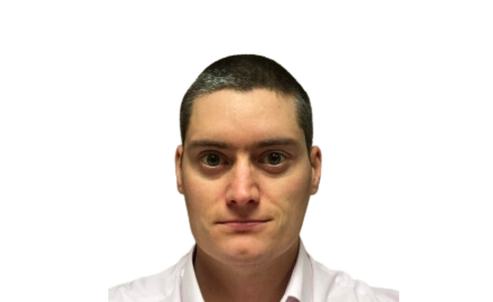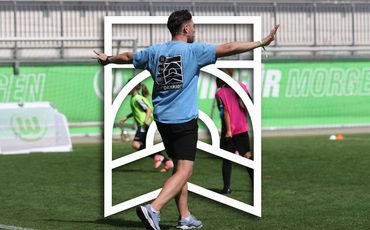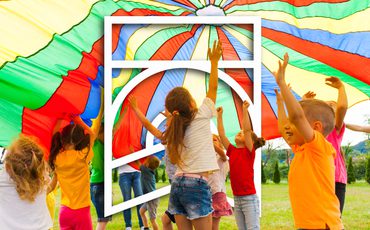
Lessons for coaching from building a paper airplane
with Dr. Phil Kearney
At a recent workshop at the ICOACHKIDS conference, I undertook a coaching journey.
The task was simple enough: under tight time constraints, and with an eye to an eventual competition against all other participants in the workshop, we had to work in pairs to build a paper airplane. However, one party was to do the building with their eyes closed, while the other party was to provide instruction. An obvious exercise about clarity of communication. No problem, I thought; I just need to give very clear, very detailed instructions, breaking the task down into very small steps.
It didn’t work.
My instructions were certainly detailed, and definitely focused on minute steps (e.g., “rotate the page so that the long edges are horizontal and the shorter edges are vertical”), but they were confusing to my partner, Guillermo, who was clearly having to work very hard to relate the specific steps I was detailing to the overall task.
“What am I doing?!” The thought appeared so suddenly and forcefully that I said it aloud, and laughed at myself. Asked to perform an unusual task, with no time for planning, I had slipped into a default mode of behaviour; one that was neither working, nor aligned with how I aspire to coach. A change was needed.
I asked Guillermo: “Do you know how to make a paper airplane?”. He did. “Ok” I replied; “do it”.
As Guillermo began to fold the paper again, I’m watching, I’m listening; I don’t have to concentrate on carefully crafting my instruction so I can instead concentrate on his process. I see slight errors (fold not straight, not even), I hear his self-talk (“I think that’s even”). Two things quickly became apparent. Firstly, that Guillermo and I build paper airplanes according to subtly different techniques. Secondly, while things were working much better, there were still errors; for example, one wing was much larger than the other. Of course there were errors – he’s doing this blind! Another change was needed.
I told Guillermo that if he wanted to check anything with me (e.g., is that fold to the middle; how close to 45 degrees is that angle), he just needed to ask. In the next couple of minutes he asked a few questions, I made a couple of observations, we build an awesome paper airplane, and I had a powerful stimulus to reflect upon my coaching.
When you read this story, what lessons can you identify about coaching?
Guillermo’s response:
I loved the self-reflection exercise. I actually caught myself reading your words and discovering new things about that plane building moment.
Two things stuck with me. First the fact that we have a different process for making planes, which directly translates to a coaching philosophy. There is more than one way of achieving goals in sport. If we, as coaches, aren't open to that idea we'd be missing out on so much creativity and so many different points of views from everybody else.
Second thing that increased the difficulty was the fact that I had to feel the plane, and not see it. Granted that constraint is not usual, but it does give some insight into how the response time slows down when you have to process more information or in a different way. Again, this fits perfectly with an athlete-centered coaching philosophy. We have to speak the same language and have the same information channels as kids do so that they don't get overloaded with information.
Amazing how much we can take from a simple exercise as this one. It just shows how important these conferences are and how open-minded we have to be as coaches. A good first step would be to ensure that all coaches do these types of self-reflection exercises after their practices. I think there's a big gap to be covered there. I will definitely be planning something like this to do with my coaches in September.
Contributor:

Dr. Phil Kearney
Phil is the Course Director for the MSc Applied Sports Coaching at the University of Limerick, Ireland. He received his PhD from the University of Limerick in 2009, investigating how applying skill acquisition principles could accelerate the development of children’s fundamental movement skills. He then taught at the University of Chichester from 2009-2017, where he was Programme Coordinator for the BSc Sport Science & Coaching. Phil returned to the University of Limerick in 2017. A Fellow of the Higher Education Authority, Phil’s research and teaching focus is on skill acquisition and youth sport, particularly in the context of developing track and field athletes. Phil is a co-founder of Movement and Skill Acquisition Ireland and holds the Athletics Coach qualification from UK Athletics
Comments
Related Pages


